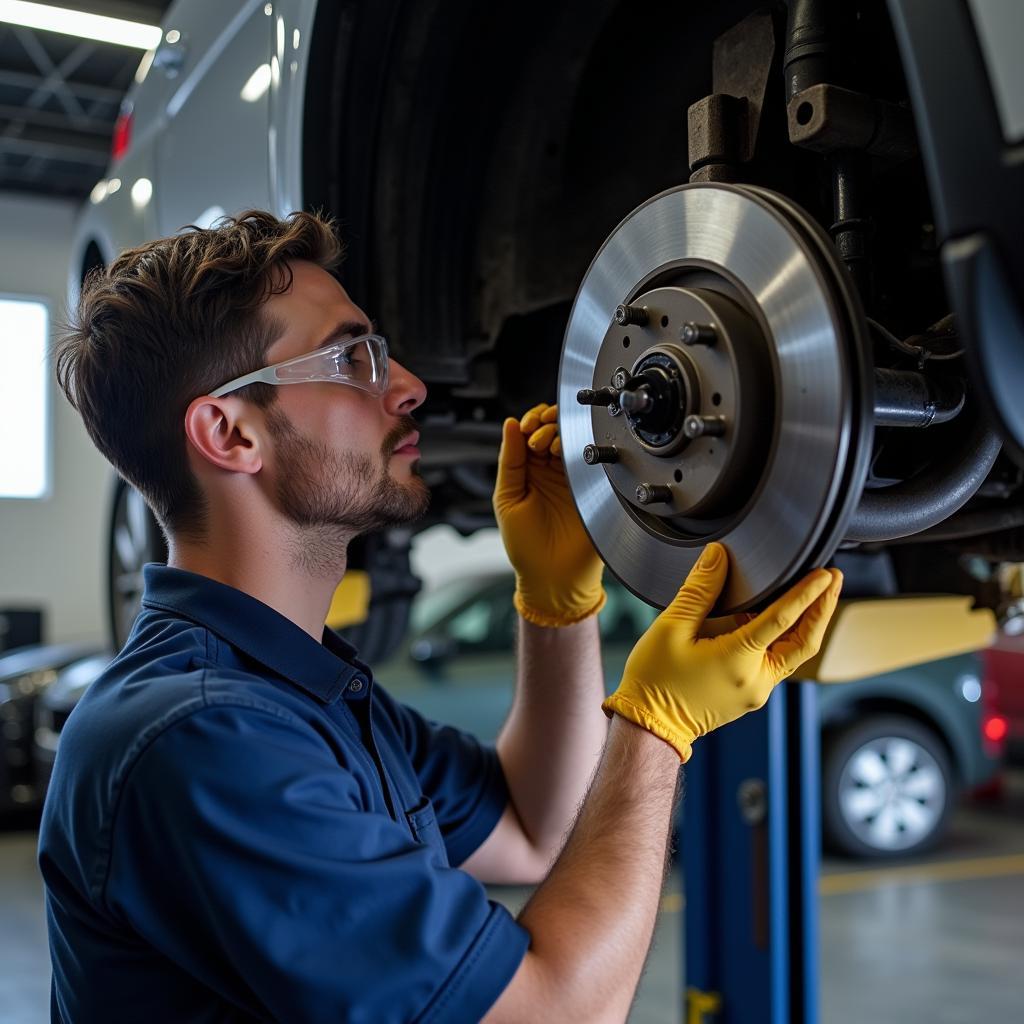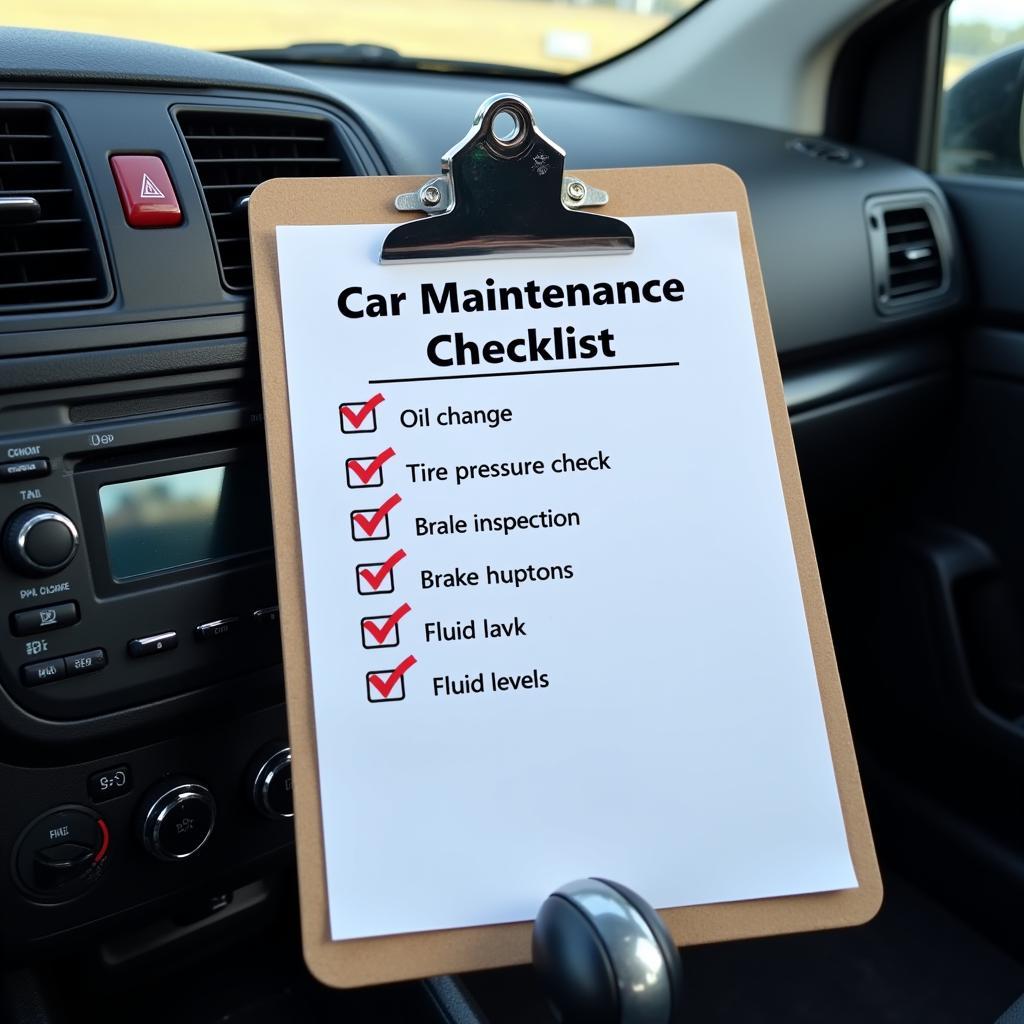Car troubles are an unfortunate reality of vehicle ownership. While some issues are minor inconveniences, others can signal serious problems that compromise your safety and drain your wallet. This guide will explore some of the Most Serious Car Problems, helping you understand their implications and take timely action.
One of the most stressful experiences [we had a lot of problems with the car](http://autotippro.com/we-had-a lot-of-problems-with-the-car/) involving sudden breakdowns and hefty repair bills. Recognizing the early signs of trouble can save you from dangerous situations and costly repairs down the road.
Warning Signs You Shouldn’t Ignore: When to Seek Immediate Attention
Several indicators point to potentially serious car problems that need immediate attention. Ignoring these signs can lead to more severe damage and safety hazards:
- Unusual Noises: Grinding, knocking, screeching, or clunking sounds coming from your engine, brakes, or suspension can indicate serious mechanical issues.
- Warning Lights on Your Dashboard: Pay attention to warning lights like the “check engine” light, brake system warning light, or airbag warning light. These lights often signal critical problems that require professional inspection.
- Fluid Leaks: Leaks under your car can be a sign of trouble. Identify the color and consistency of the fluid to determine the potential problem; for example, a bright green fluid often indicates a coolant leak.
- Smoke or Burning Smell: Excessive smoke from the engine or exhaust, accompanied by a burning smell, can indicate engine overheating, oil leaks, or electrical problems.
- Changes in Vehicle Performance: A sudden decrease in engine power, difficulty accelerating, or unusual vibrations while driving might point to serious engine or transmission problems.
Common Serious Car Problems: Causes and Implications
Here are some of the most serious car problems that warrant immediate attention and professional repair:
1. Engine Failure: Engine failure is a car owner’s worst nightmare, often resulting in costly repairs or even engine replacement. Common causes include:
- Overheating: A neglected cooling system, a faulty thermostat, or a leaking radiator can lead to engine overheating and catastrophic damage.
- Lack of Lubrication: Insufficient oil changes or a faulty oil pump can deprive the engine of vital lubrication, leading to excessive friction and eventual failure.
- Timing Belt Failure: The timing belt synchronizes the engine’s valves and pistons. If it breaks, the pistons can collide with the valves, resulting in extensive engine damage.
2. Transmission Problems: The transmission is responsible for transferring power from the engine to the wheels. Problems with this system can severely affect your car’s drivability.
- Slipping Gears: If your car jerks or hesitates when shifting gears, it could indicate a problem with the transmission fluid, clutch, or internal components.
- Rough Shifting: Difficulty shifting gears or a grinding noise when changing gears can point to worn-out synchronizers or other internal transmission issues.
3. Brake System Failure: A malfunctioning brake system poses a serious safety risk. Common brake problems include:
- Worn Brake Pads and Rotors: Over time, brake pads and rotors wear down, reducing braking efficiency and potentially leading to brake failure.
- Brake Fluid Leaks: Leaks in the brake lines or cylinders can cause a loss of hydraulic pressure, resulting in a soft brake pedal and reduced braking power.
 Mechanic inspecting car brakes on a lift
Mechanic inspecting car brakes on a lift
4. Steering and Suspension Issues: Problems with your car’s steering and suspension can affect handling, stability, and overall safety.
- Power Steering Failure: A whining noise, stiff steering wheel, or fluid leaks can indicate problems with the power steering pump, rack, or belt.
- Worn Suspension Components: Worn-out shocks, struts, or ball joints can cause a bumpy ride, poor handling, and uneven tire wear.
5. Electrical System Malfunctions: Modern cars heavily rely on complex electrical systems. Electrical problems can range from minor inconveniences to major breakdowns.
- Alternator Failure: A failing alternator can’t recharge the battery, leading to a dead battery and eventually, a complete electrical system shutdown.
- Wiring Harness Issues: Damaged or corroded wiring harnesses can cause various electrical problems, including shorts, open circuits, and malfunctioning components.
Preventing Serious Car Problems: Maintenance is Key
While some car problems are unavoidable, regular maintenance can significantly reduce the risk of encountering major issues.
- Follow the Recommended Maintenance Schedule: Adhere to the manufacturer’s recommended maintenance schedule in your owner’s manual for oil changes, fluid checks, and component inspections.
- Pay Attention to Warning Signs: Address unusual noises, warning lights, or changes in vehicle performance promptly.
- Choose a Reputable Mechanic: Have your car serviced by a qualified and trustworthy mechanic, especially for complex repairs.
 Car maintenance checklist on clipboard
Car maintenance checklist on clipboard
Conclusion: Be Proactive, Stay Safe
Recognizing the most serious car problems is crucial for ensuring your safety and protecting your investment. By understanding the warning signs, addressing issues promptly, and investing in regular maintenance, you can minimize the risk of encountering major car troubles. Remember, a well-maintained car is a safe and reliable car. If you’re experiencing any issues with your vehicle or need professional assistance, don’t hesitate to contact AutoTipPro at +1 (641) 206-8880. Our team of expert technicians is here to help you get back on the road safely and confidently. You can visit our office located at 500 N St Mary’s St, San Antonio, TX 78205, United States.




Leave a Reply